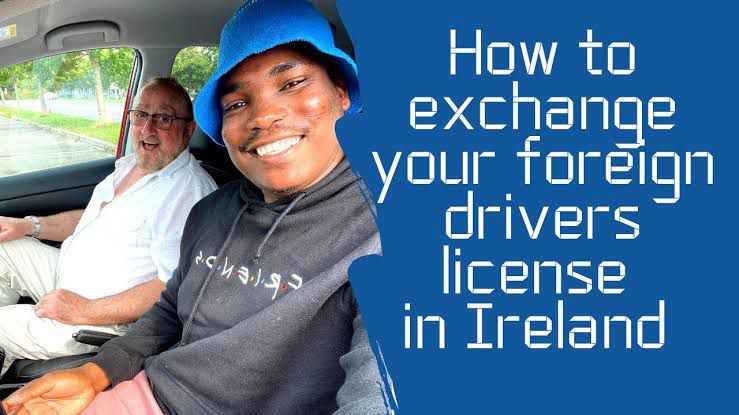GETTING A DRIVING LICENCE
GETTING A DRIVING LICENCE
GETTING A DRIVING LICENCE
Do I need to get an Irish driver’s licence?
For EU & EEA licence holders
Drivers who wish to exchange their EU or EEA driving licence for an Irish one need to do it within 10 years of their previous driver’s licence expiring.
For other licence holders
Visitors to Ireland can drive on a licence from their own country as long as it’s valid and they have held a driving licence for at least 12 months. The driver must be over 21 years old and have held a full, valid licence for the last three years.
If you wish to exchange your current driver’s licence for an Irish one, or need to complete a test and apply for an Irish driving licence, follow the steps below.
Getting a driving licence in Ireland
Exchanging a licence
If you hold a licence from within the EU, the EEA or a ‘recognised state’, you can exchange your current driver’s licence for an Irish one.
- The UK, including Northern Ireland
- Australia
- Gibraltar
- Guernsey
- Isle Of Man
- Japan
- Jersey
- South Africa
- Republic of Korea
- Switzerland
- New Zealand
- Taiwan
- The Canadian provinces of: British Columbia, Newfoundland & Labrador, Ontario, Manitoba, Saskatchewan and Alberta
People with licences from these ‘recognised states’ can exchange their licences for up to one year after it expires.
Getting a driving licence in Ireland is really easy. Whether you have your foreign licence or wish to exchange it for an Irish one, NDLS has made it easier than ever to do so. To apply, simply fill in the online application form and pay online with a card (visa debit/credit or eps are accepted).
Your current or latest driving permit. On the other hand, a letter of qualification from the permitting authority will work as well.
A Public Administrations Card and confirmed MyGovID – you can figure out how to get those set up here.
Confirmation of address for your home in the Republic of Ireland
Evidence of Irish residency
A new visual perception and clinical report – the last option is just expected in specific conditions
To drive transports or trucks expertly, you’ll require a declaration of expert skill
An application expense of €55 – this can be paid via card, Google Pay or Apple Pay
Assuming you’d like to trade your permit face to face at your nearby NDLS focus, you can make an arrangement as well. Simply bring the above reports, alongside an application structure.
If you’d prefer to exchange your licence in-person at your local NDLS centre, you can make an appointment too. Just bring the above documents, along with an application form.
Applying for a driving licence
Visitors from countries outside the EU, the EEA and the above listed countries can drive on Irish roads using their own country’s licence for up to 12 months. But, after this, they’ll need to apply for an Irish licence and complete all the same steps as a brand new driver.
Unfortunately, the process of obtaining a new driving licence in the Republic of Ireland is much trickier than exchanging one. It will take some time too.
First, you must first pass a written driver theory test before applying for a learner permit. Then, you’ll need to take a course in Essential Driver Training, which requires at least 12 hours of training. Once you’ve completed these lessons and have had your learner permit for at least six months, you can sit your driving test. If you pass, you can then apply for a full Irish driving licence.
Vehicle tax and insurance
In the Republic of Ireland, it is illegal to drive a vehicle that has not been taxed and insured. Here’s what you need to know.
Motor tax in Ireland
The motor tax rate you pay depends on the age of your car. Vehicles built before July 2008 are assessed on the size of their engines. Those built after that date are assessed on their CO2 emissions – the more your car emits, the more it will cost you.
Annual motor tax rates can range from €120 right up to €2,350. So, when buying a car, it’s worth checking what tax band each vehicle falls into. Over time, purchasing a newer, well-serviced car will pay off. Most car selling sites include it alongside the car’s specifications. Once you’ve got a new set of wheels, you can tax your vehicle online.
Car insurance
You also need to insure your car before you can legally drive it on Irish roads. Your insurance has to cover third-party expenses at the very least. But comprehensive cover is probably the best option as it covers your own costs, as well as those of anyone else involved in a road incident.
One of the big perks of living in Dublin is its comprehensive public transport system. So, if you’re unsure about investing in a car, you should read up on Dublin’s public transport.
